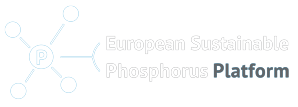Data on Nutrients to Support Stewardship (DONUTSS)
DONUTSS (Data on Nutrients to Support Stewardship) aims to identify what data is needed by decision makers (agriculture, industry, investors waste sector and policy makers) on nutrient stocks and flows, and define how to make this data available.
Through DONUTSS, ESPP aims to support policy decisions and to evaluate their implementation, product stewardship indicators, circular economy objectives and management actions. This action targets phosphorus (P), potassium (K), possibly other bio-nutrients (e.g. Mg, Ca …). DONUTSS will look at both the gaps in scientific knowledge and methodology for nutrient flow analysis, the operational needs of industry actors and decision makers, and the capacity of data monitoring bodies, and how to communicate the data to decision makers.
The need for improved knowledge of phosphorus flows was the first conclusion of the European Commission Consultative Communication on the Sustainable Use of Phosphorus (Staff Working Document SWD(2014)263final): “In terms of ascertaining the extent of phosphorus supply and demand, … the replies pointed to a need to increase the knowledge base”.
To date, around 20 phosphorus flow studies have been published in different countries and regions of Europe. However, the methodologies used, sectors covered (agriculture, industry, households etc.), spatial scales and time-horizons are very variable so that results cannot be compared. Many regions have no useable phosphorus flow data. Data for other nutrients is even more scarce and disjoined. Where data is available, it is not readily accessible to stakeholders and is not orientated towards identifying points of possible effective action. Data is rarely updated, so following results of system changes or of impacts of nutrient management actions is not possible.
To launch this work, a 1st workshop was organised in Ghent, 3-4 September 2015 (with Biorefine, Ghent University, Wageningen University, TU Vienna). This DONUTSS workshop was a success and showed that there is a clear need for future action on bionutrient data quality. ESPP wants to take this action further with the contribution of stakeholders such as the European Commission, data and statistics agencies, industry partners and research institutes.
The following outcomes of the 1st DONUTSS workshop are available:
- Workshop program
- Workshop summary report
- Workshop presentations available below
- Workshop round table session reports
- DONUTSS project outline
For further questions, suggestions and involvement please contact:
Kimo van Dijk (researchers ESPP)
Workshop presentations downloads
Day 1 - Thursday 3 September 2015
Opening - Chris Thornton
Nutrient data and flows: EU policy context - Francesco Presicce
EU wide overvie on P flows and data quality - Kimo van Dijk
Comparison of European substance flow analyse (SFA) of phosphorus - Michael Jedelhauser
From scientific MFA to routine monitoring schemes - Ottavia Zoboli
Data on nitrogen: required and available - Gerard Velthof
Data quality and implications for P governance - from speculation to knowledge - Christian Kabbe & Fabian Kraus
Quality and availability of nutrient data for AEI and other indicators - Anne Miek Kremer
Nutrient data, a crucial input to environmental assessments - Geertrui Louwagie
DONUTSS Project outline - Ottavia Zoboli
Day 2 - Friday 4 September 2015
UK P flows with focus on proposed indicators for decision makers - Cynthia Carlielle-Marquet & James Cooper
A national data system on P inputs and balances established by fertilizer industry - Philippe Eveillard
Specific needs to support the development of a market for recycled nutrients - Vincent Delvaux
The sustainability consortium - Frank de Ruijter
PHORWater - Nutrient data monitoring to support decision making - Sofía Grau González
Data on nutrients in recycled biowaste - Wim Vanden Auweelen
Contribution to the workshop - Benoît Planques
Conclusions - Chris Thornton
